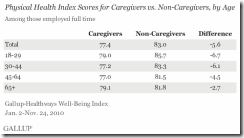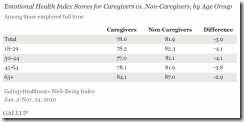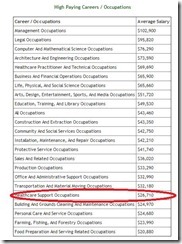Asian bankers are having a field day as the number of millionaires in the region swell
From Bloomberg (bold emphasis mine)
Asia-Pacific millionaires outnumbered those in Europe for the first time in 2010, according to a survey by Capgemini SA and Bank of America Corp. More millionaires means more spending and more demand for private wealth managers from banks such as BSI SA, JPMorgan Chase & Co. (JPM), UBS AG (UBSN) and HSBC Holdings Plc. (HSBA)Recruiters say too many banks are hunting too few experienced staff in the region, pushing up salaries and crimping profits.
“Good bankers have at least one offer on the table, if not two,” said Collardi, 37. “Today, if you want to be successful in hiring, you need to be forceful.”
Global demand for client relationship managers is expected to rise 13 percent over 2011 and 2012, while growth in the Asia- Pacific region will be double that, PricewaterhouseCoopers LLP said in an e-mail. That’s pushed top salaries in Singapore to almost twice the level in Switzerland, the world’s biggest offshore wealth manager, according to London-based recruitment firm EMA Partners International.
Senior private bankers in Singapore earn between $160,000 and $410,000 a year, while the comparative range in Switzerland is $152,000 to $210,000, EMA estimates.
“People are simply paying too much and that cannot be justified from an economic point of view,” said Thomas R. Meier, Zurich-based Julius Baer’s CEO in Asia. If a bank pays 30 percent more than a person’s salary at his previous employer, and the new recruit ends up adding just 5 percent more to revenue, the bank will feel the pinch, the 48-year-old said.
The premium to attract somebody new in Asia is 20 percent to 30 percent of their base compensation, said Matthew Streeton, partner at The Consulting Partnership, a Singapore-based recruitment firm. Usually, private bankers get a guaranteed bonus in their first year on top of the base salary and thereafter earn an annual bonus based on performance, he said…
Asia’s 3.3 million high-net-worth individuals had $10.8 trillion in assets, compared with the $10.2 trillion accumulated by their 3.1 million counterparts in Europe, according to the report published in June by Capgemini and Bank of America’s Merrill Lynch Global Wealth Management.
Recruiters say private bankers need an apprenticeship because wealthy clients expect to be advised by someone with experience who can understand their goals.
Remarkably Asian bankers are even paid more than their bosses or multinational employers.
Yet all these signify as mounting evidence of an ongoing paradigm shift from a myriad of agglomerated forces, such as globalization, wealth convergence, the internet, technology driven innovation and differences in the degree of the welfare state, economic freedom and applied administrative, fiscal and monetary policies.



